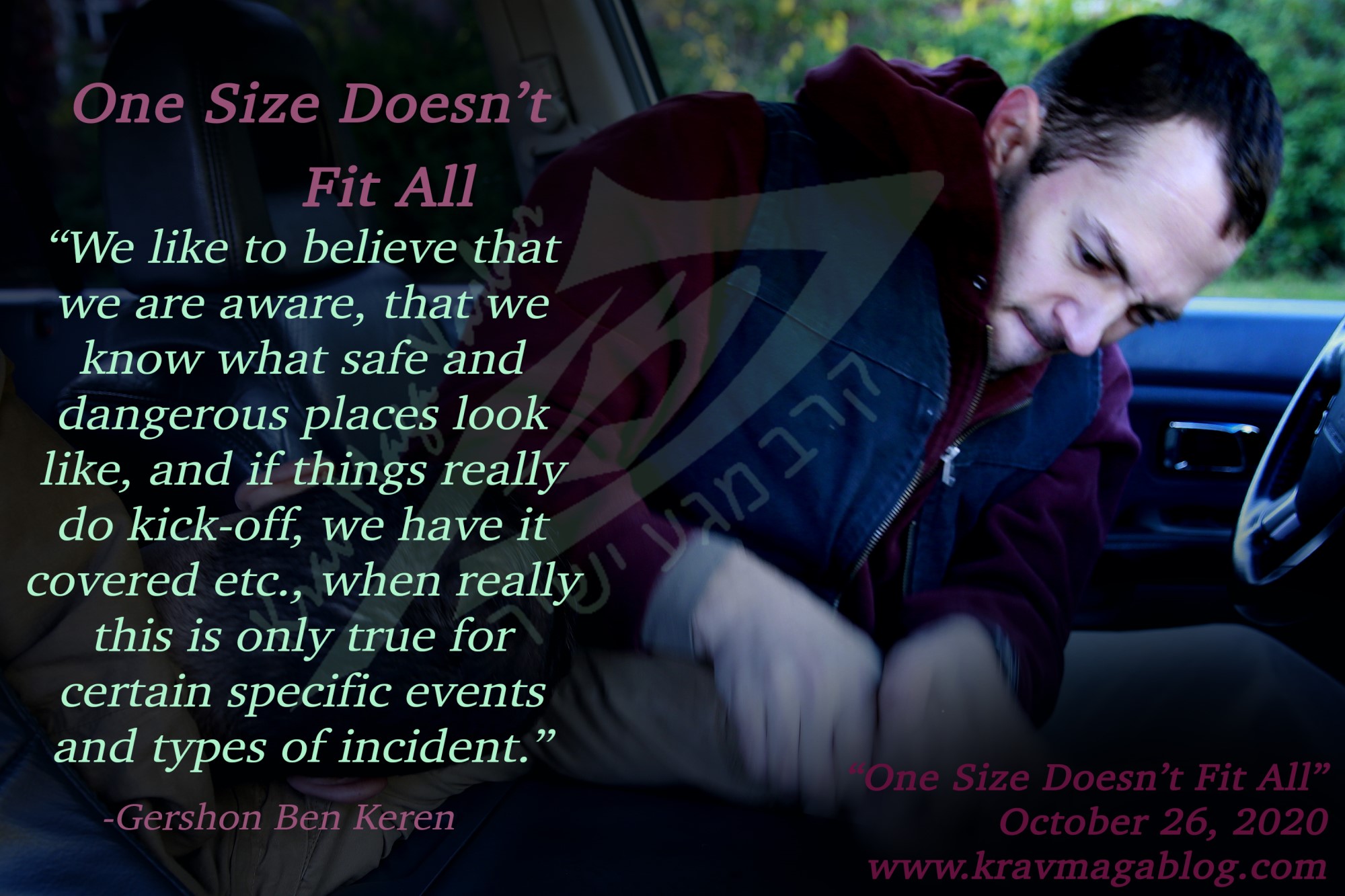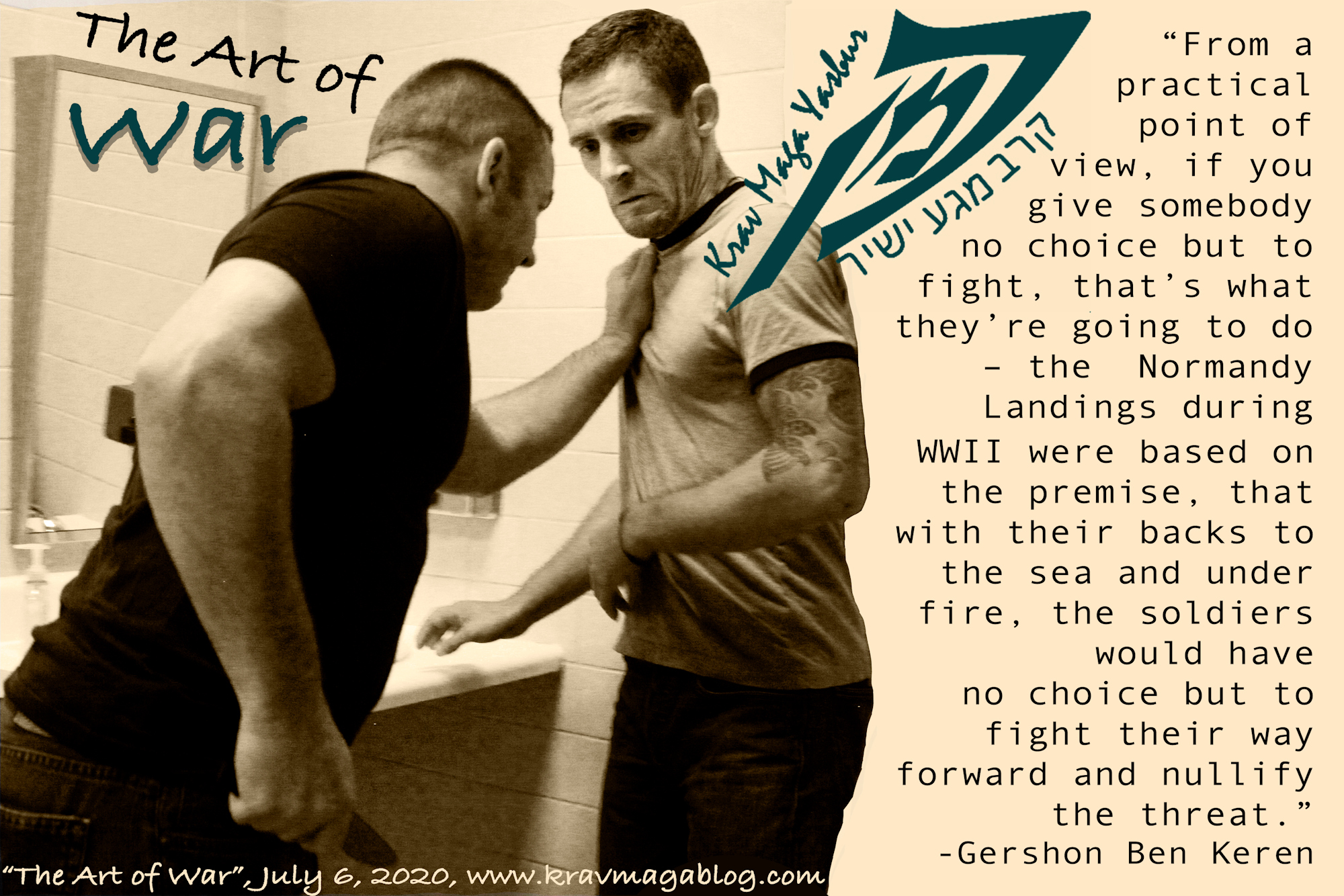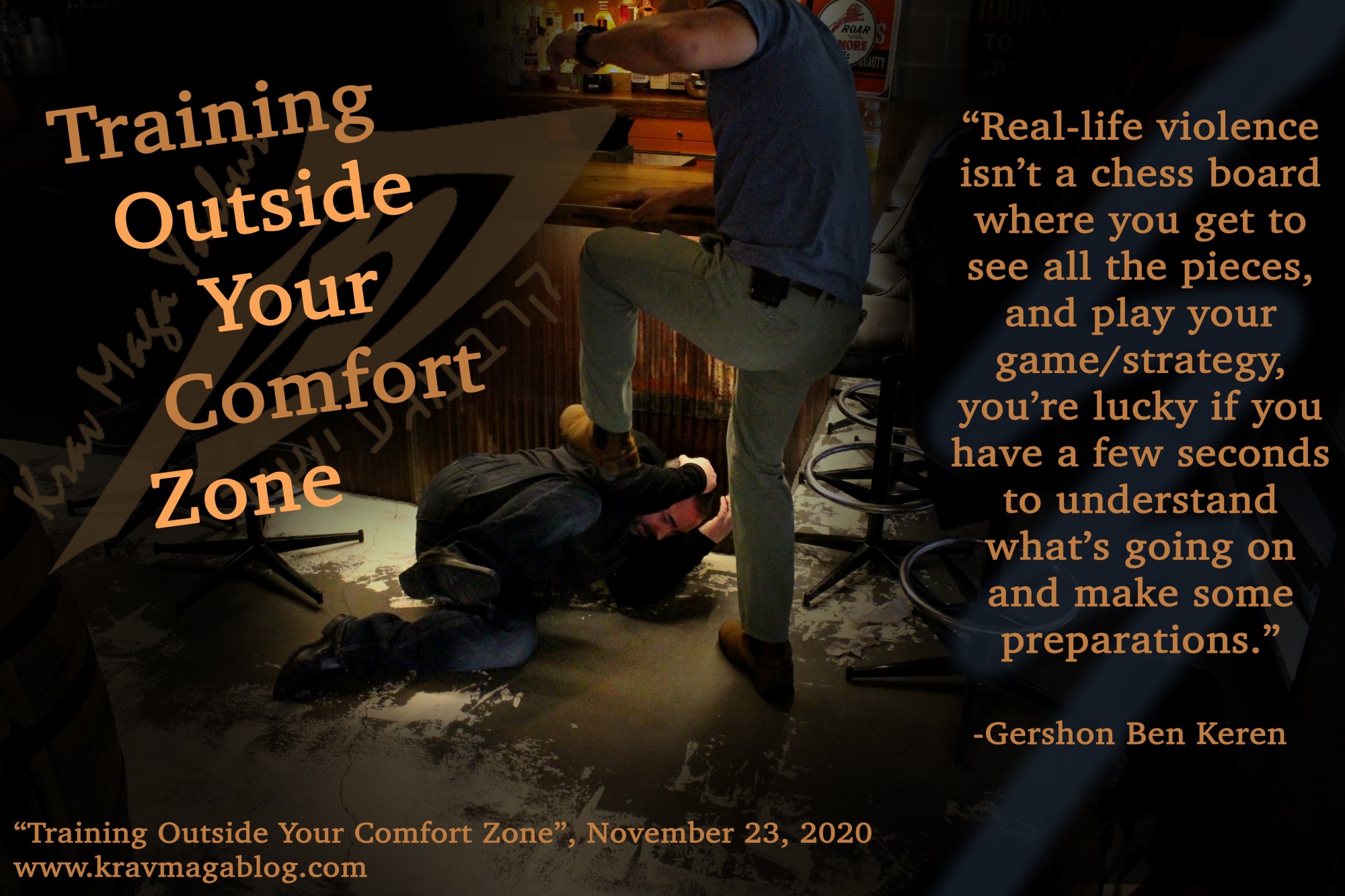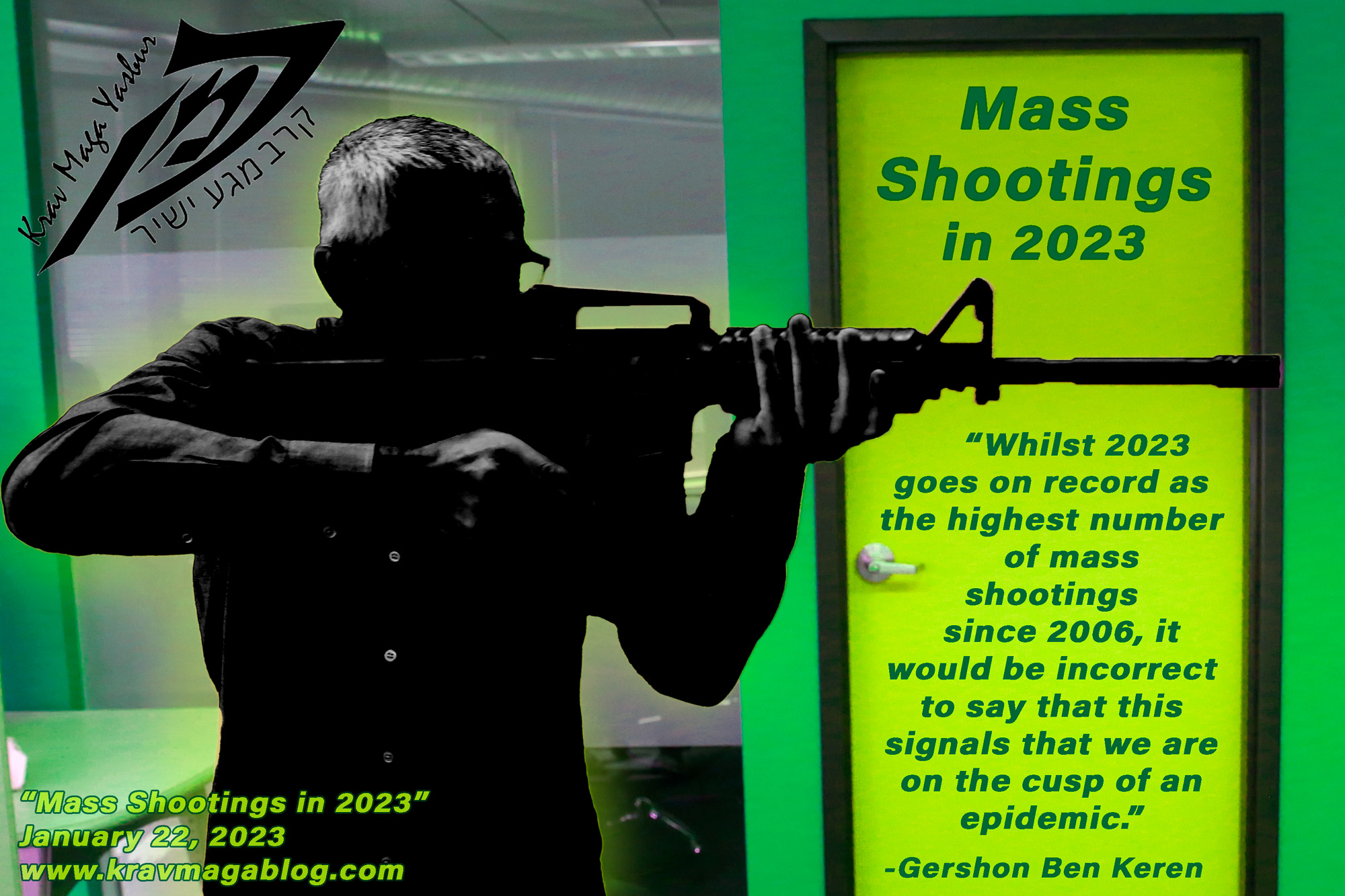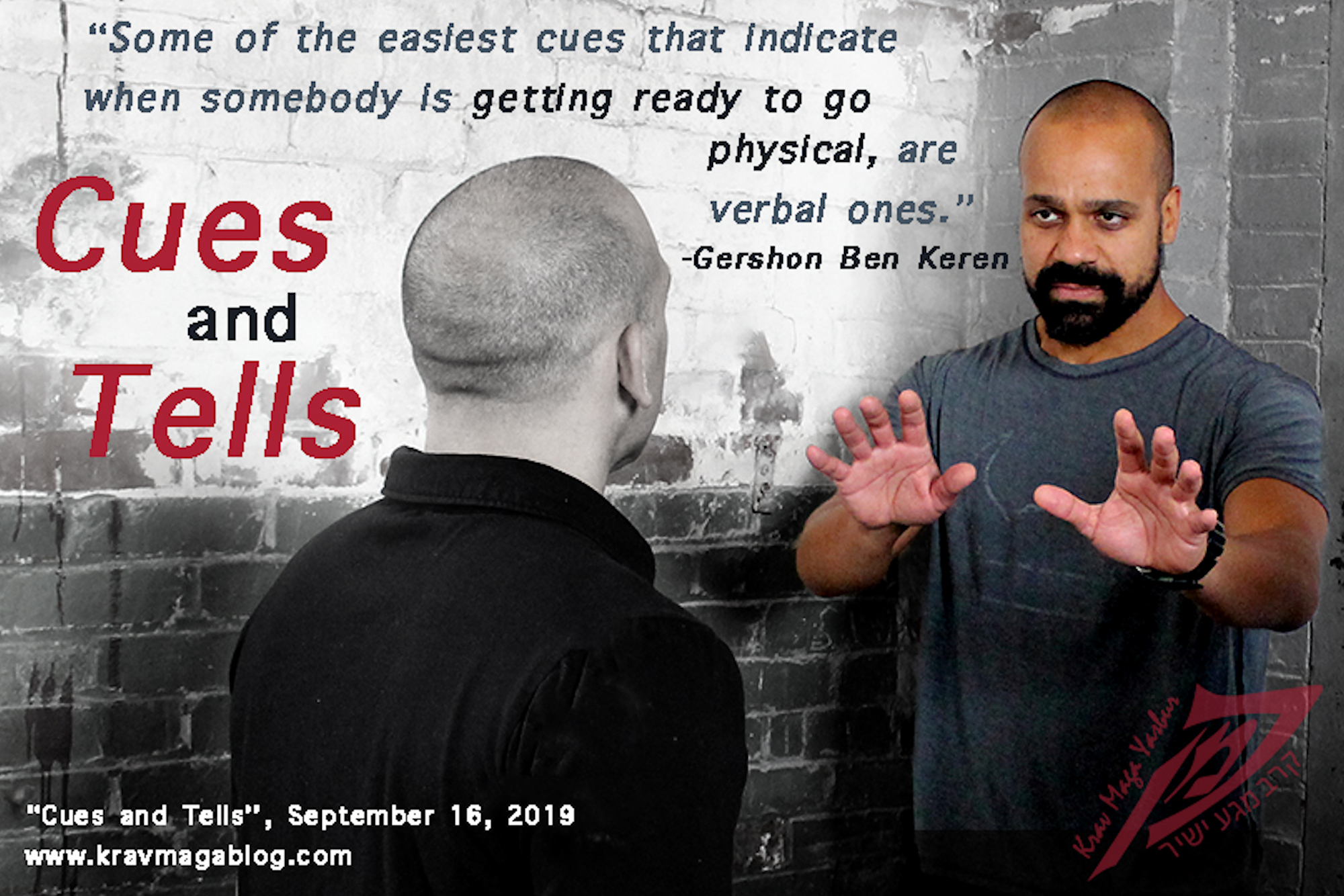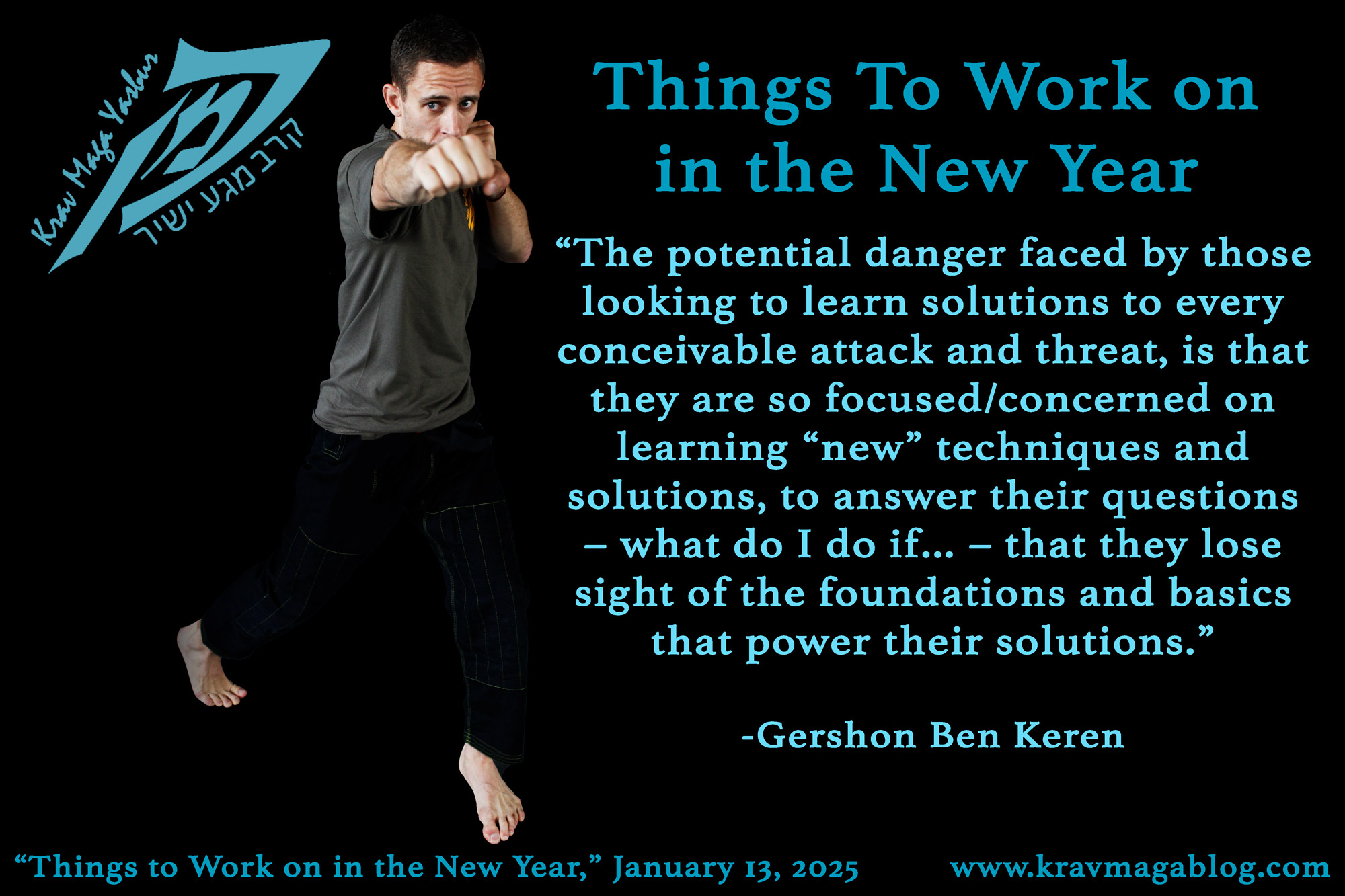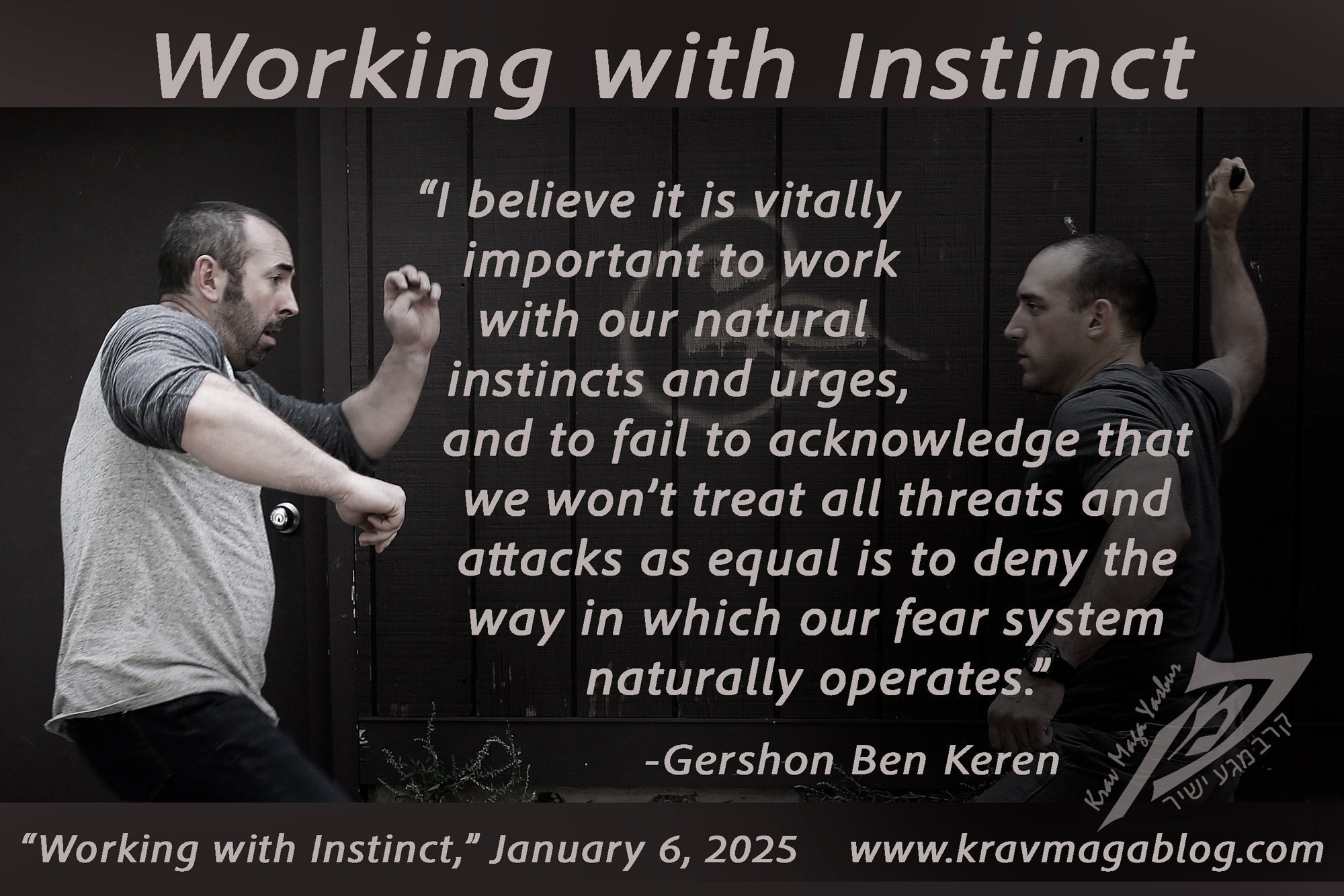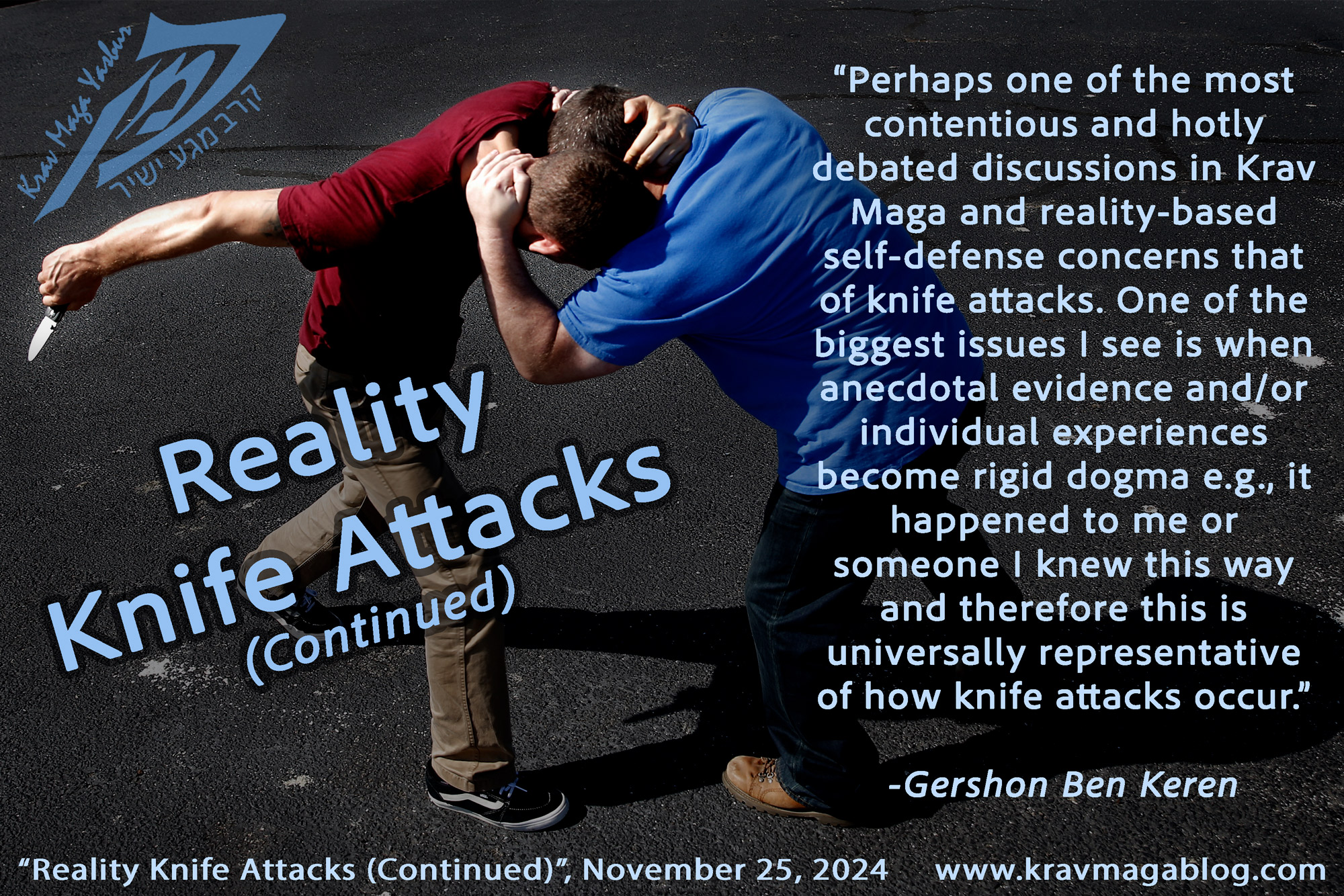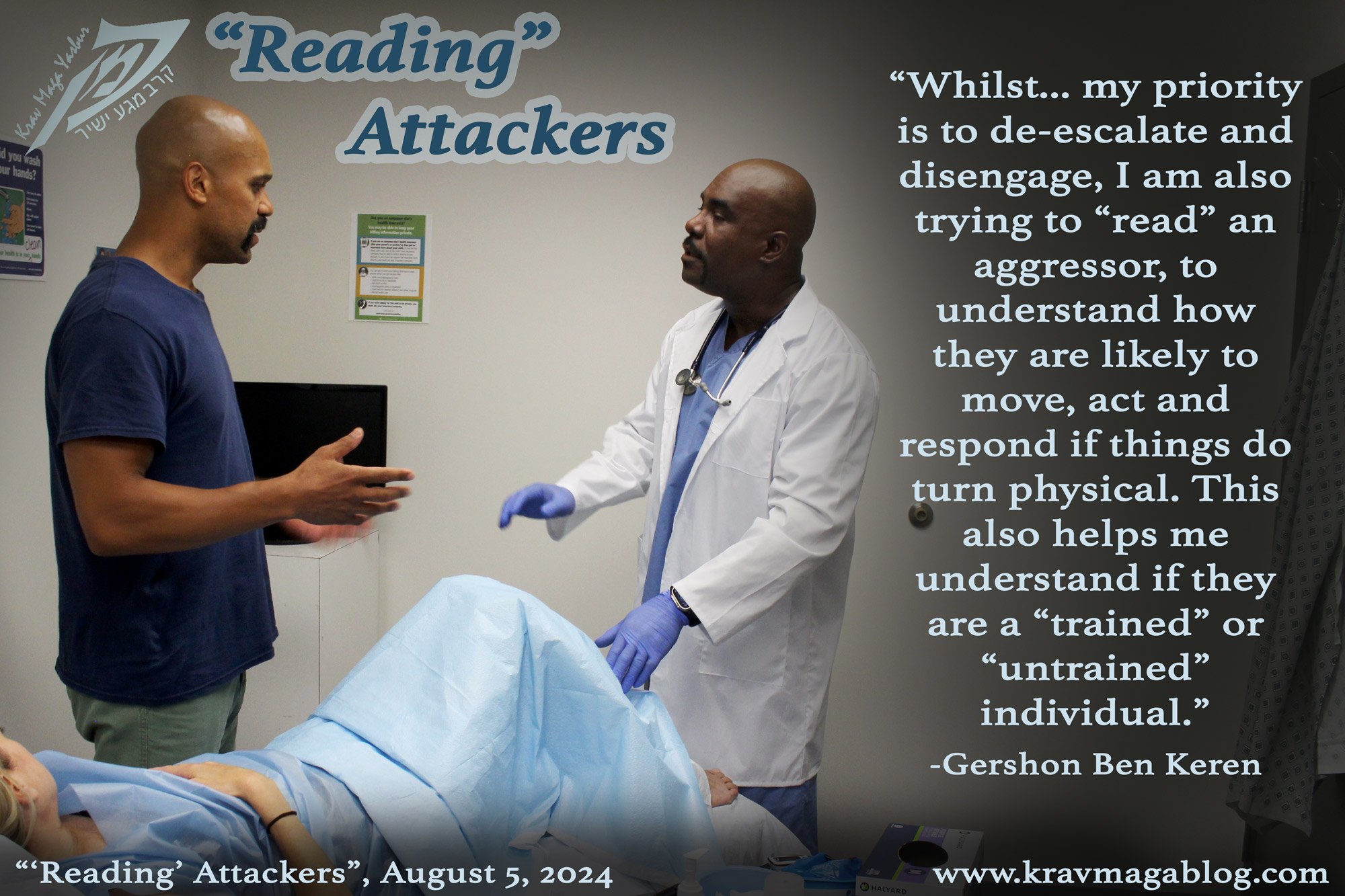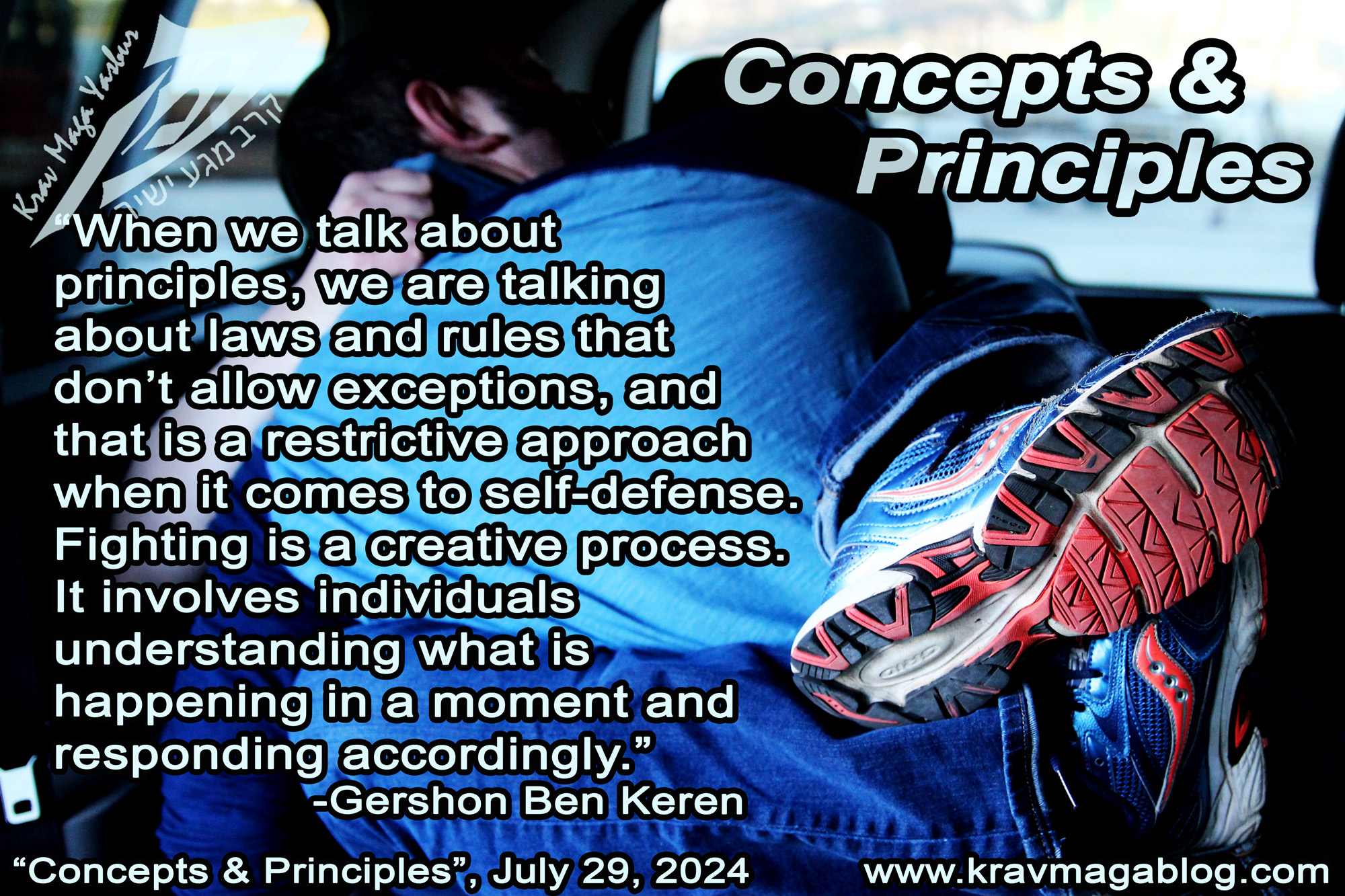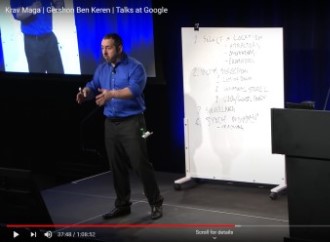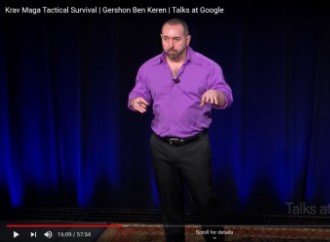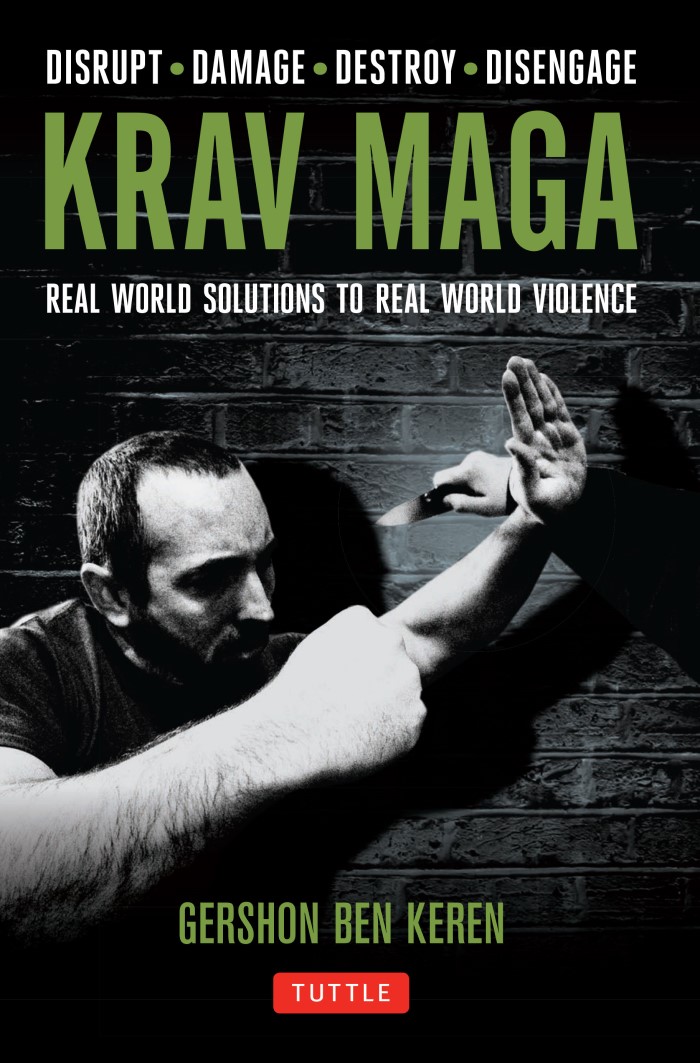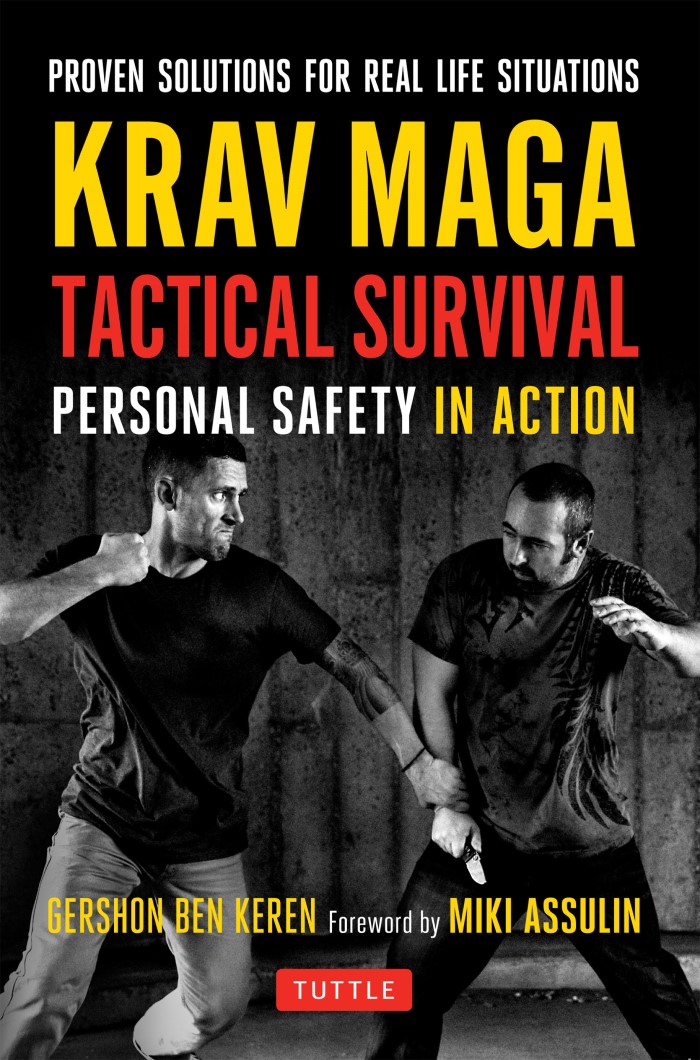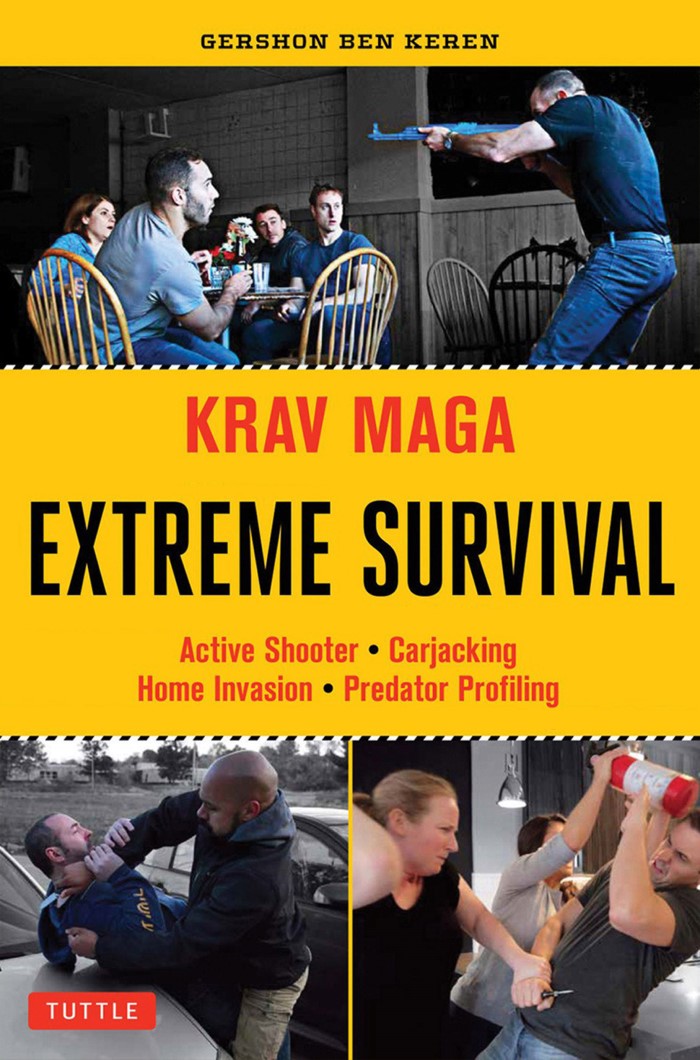Being Tough - CQC Training, is an article written by Gershon Ben Keren, a 5th Degree Black Belt in Krav Maga, who teaches Krav Maga in Boston, MA. He has also authored three Amazon best-Selling Books on Krav Maga.
It doesn’t take any intelligence to take a punch, nor does it take a lot of intelligence to throw one – most fights would never start if it did. Nor is it a mark of “toughness” to be able to take a beating; that is simply a matter of conditioning i.e. if you take enough shots in your life, you’ll be able to manage the physical pain – being bullied as a child taught me that one (you can hear and feel a rib crack in a very detached and disassociated manner). The endurance of physical pain is not in itself a mark of toughness, though many people, especially in the martial arts, believe it is. However the way in which you emotionally adapt to the pain is.
I went to school with a lot of “tough” kids who had never been in a physical confrontation: those whose parents went through messy and aggressive divorces, those who had fathers in prison, and those who witnessed the death of a sibling or a close friend. They were tough because they knew how to emotionally adapt and cope with the potentially traumatic situations they faced, whilst not changing the person they were as an individual.
It is common knowledge that bullies are cowards, weak and not really tough, however they are often more than capable of being able to dish out a beating (and take one) – something a lot of school bullying programs fail to acknowledge. Emotionally weak people are more than able to inflict both physical and emotional pain as well as injury. Most bullies have themselves been the victims of bullying. Where they are “weak” is in their emotional capacity to adapt to the physical and emotional punishment they endured; rather than become stronger themselves they engage and perpetuate in the activities they were subjected to e.g. spreading rumors, trying to isolate others and engaging in threatening or physically abusive behavior. This is not being tough this is putting up a façade and an image of what they believe society believes to be toughness and they’re often successful in doing so.
Many people may have seen the “physical” portion of Animal Day as being the mark of toughness e.g. putting on the head gear/body armor and standing toe to toe with someone and slugging it out. After watching the video footage of everybody I noticed a correlation between the way people performed in the physical/aggression component and the way they handled themselves in the decision making/adaptability section. Some people were great at slugging it out they put on the headgear and started swinging, others started slow and then when they realized what was required of them started to up the intensity. These were the ones who coped best in the situation we presented. These were the adaptable ones: the tough ones.
Physical pain needs to be recognized, often it isn’t recognized e.g. I’ve been hit on the head with mobile phones, full bottles of beer etc. and never realized what was happening. The foolish would argue that this was a mark of toughness. I’d disagree. I would rather be judged as being tough, for having been bullied without becoming a bully. It doesn’t take much to learn how to endure pain; a victim of domestic abuse will tell you how quickly they learnt to take a beating, and how much harder it was to come to terms with what was happening to them and adapt to their emotional situation i.e. the tough part. Understanding yourself in a difficult situation and honestly coming to terms with it is the mark of toughness.
Watching video footage of CQC training footage is fascinating stuff. My favorite parts are watching the moments of realization and understanding on people’s faces and then seeing them make a decision. In my head I still relive the first time I did a CQC circuit; I vividly recall not handing over my wallet to an aggressor and as a result engaging in a fight in an environment that was totally stacked against me – it taught me a great lesson about not engaging when I didn’t have to. I carry that lesson with me daily. I fucked up and I know it. Lesson learnt.
We think that the person who engages in every potential confrontation is the tough one. I disagree. Standing up to a situation is very different to engaging in one. Walking away from a threat, whilst your peers look on, is a difficult thing to do – that’s why we left everybody in the room who had finished the CQC circuit beforehand. Believing how you should act in front of others but following your own plan, ideas and decisions is about staying true to yourself. It’s about not following the predictable path/route but doing what is right. That’s being tough.
If you think that being tough is about enduring physical punishment etc. there are plenty of MMA gyms etc that will take your money along with your face and make you tough. There is a physical component to toughness but learning how to take and give a beating is not the way. Learning to understand, interpret and adapt is. I always hope that people take from the mats. Not just the physical self-defense but the ability to adapt and respond to situations in their day-to-day lives. That’s being tough. I hope the CQC training last Saturday helped and advanced that.
0 COMMENTS
